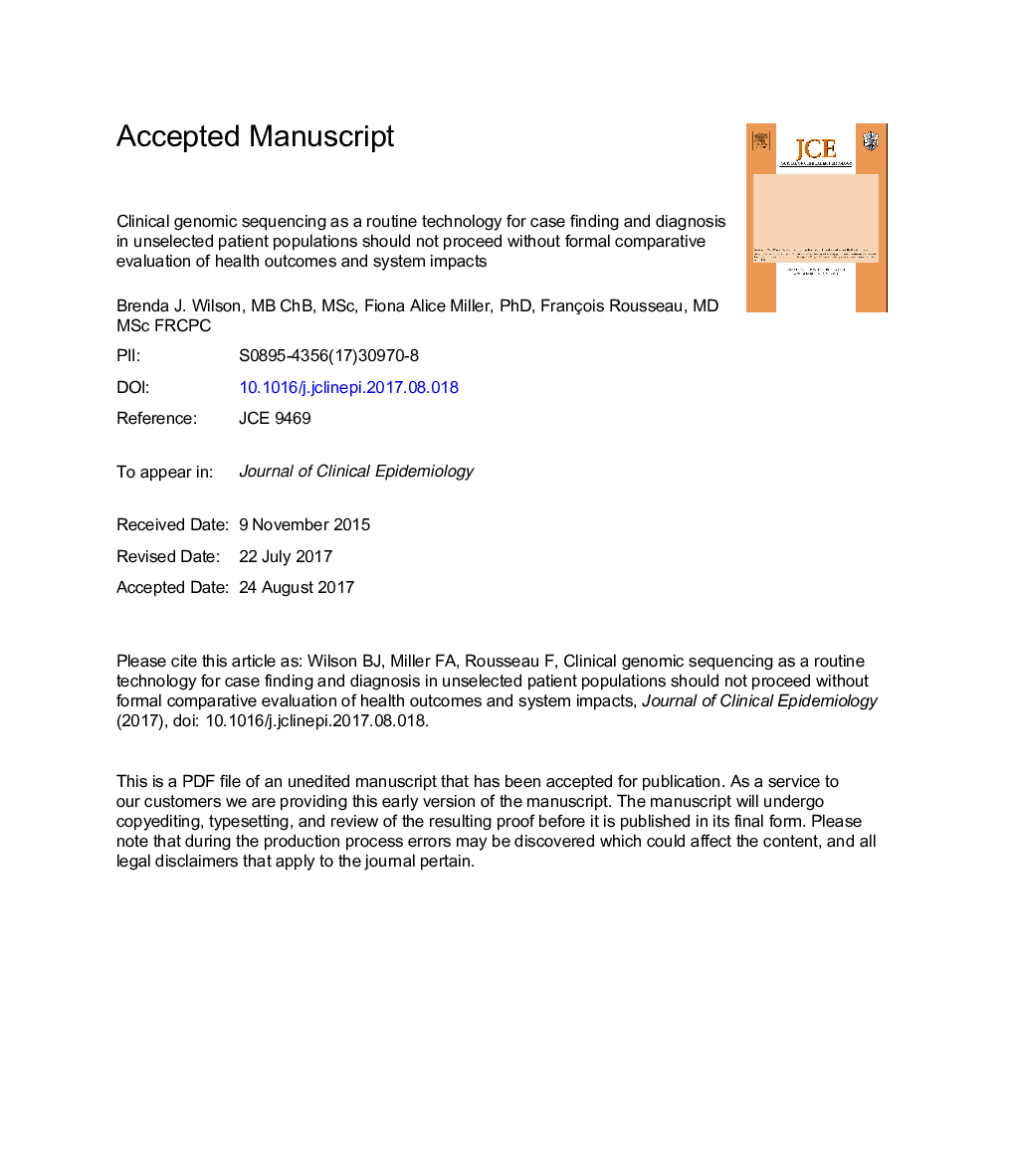| کد مقاله | کد نشریه | سال انتشار | مقاله انگلیسی | نسخه تمام متن |
|---|---|---|---|---|
| 7519176 | 1486832 | 2017 | 16 صفحه PDF | دانلود رایگان |
عنوان انگلیسی مقاله ISI
Controversy and debate on clinical genomics sequencing-paper 1: genomics is not exceptional: rigorous evaluations are necessary for clinical applications of genomic sequencing
ترجمه فارسی عنوان
بحث و بحث در مورد ژنومیک بالینی توالی مقاله 1: ژنومیک استثنایی نیست: ارزیابی دقیق برای کاربرد بالینی توالی ژنومی ضروری است
دانلود مقاله + سفارش ترجمه
دانلود مقاله ISI انگلیسی
رایگان برای ایرانیان
کلمات کلیدی
موضوعات مرتبط
علوم پزشکی و سلامت
پزشکی و دندانپزشکی
سیاست های بهداشت و سلامت عمومی
چکیده انگلیسی
Next generation genomic sequencing (NGS) technologies-whole genome and whole exome sequencing-are now cheap enough to be within the grasp of many health care organizations. To many, NGS is symbolic of cutting edge health care, offering the promise of “precision” and “personalized” medicine. Historically, research and clinical application has been a two-way street in clinical genetics: research often driven directly by the desire to understand and try to solve immediate clinical problems affecting real, identifiable patients and families, accompanied by a low threshold of willingness to apply research-driven interventions without resort to formal empirical evaluations. However, NGS technologies are not simple substitutes for older technologies and need careful evaluation for use as screening, diagnostic, or prognostic tools. We have concerns across three areas. First, at the moment, analytic validity is unknown because technical platforms are not yet stable, laboratory quality assurance programs are in their infancy, and data interpretation capabilities are badly underdeveloped. Second, clinical validity of genomic findings for patient populations without pre-existing high genetic risk is doubtful, as most clinical experience with NGS technologies relates to patients with a high prior likelihood of a genetic etiology. Finally, we are concerned that proponents argue not only for clinically driven approaches to assessing a patient's genome, but also for seeking out variants associated with unrelated conditions or susceptibilities-so-called “secondary targets”-this is screening on a genomic scale. We argue that clinical uses of genomic sequencing should remain limited to specialist and research settings, that screening for secondary findings in clinical testing should be limited to the maximum extent possible, and that the benefits, harms, and economic implications of their routine use be systematically evaluated. All stakeholders have a responsibility to ensure that patients receive effective, safe health care, in an economically sustainable health care system. There should be no exception for genome-based interventions.
ناشر
Database: Elsevier - ScienceDirect (ساینس دایرکت)
Journal: Journal of Clinical Epidemiology - Volume 92, December 2017, Pages 4-6
Journal: Journal of Clinical Epidemiology - Volume 92, December 2017, Pages 4-6
نویسندگان
Brenda J. Wilson, Fiona Alice Miller, François Rousseau,
